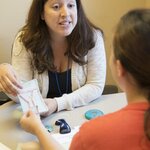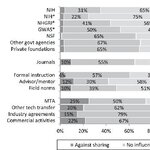
California Governor Jerry Brown has sided with the usually-anti-science National Resources Defense Council and vetoed a bill that would have forced factory farms to adhere to US Food and Drug Administration standards.
Yes, the governor of California and the NRDC don't want farms to use FDA guidelines.
There are two good reasons Governor Brown vetoed it, in defiance of the other advocacy groups that will shriek: The first and most important reason is that most farms are already more strict about antibiotics than FDA guidance is. Most farmers are not using antibiotics without a good reason…





